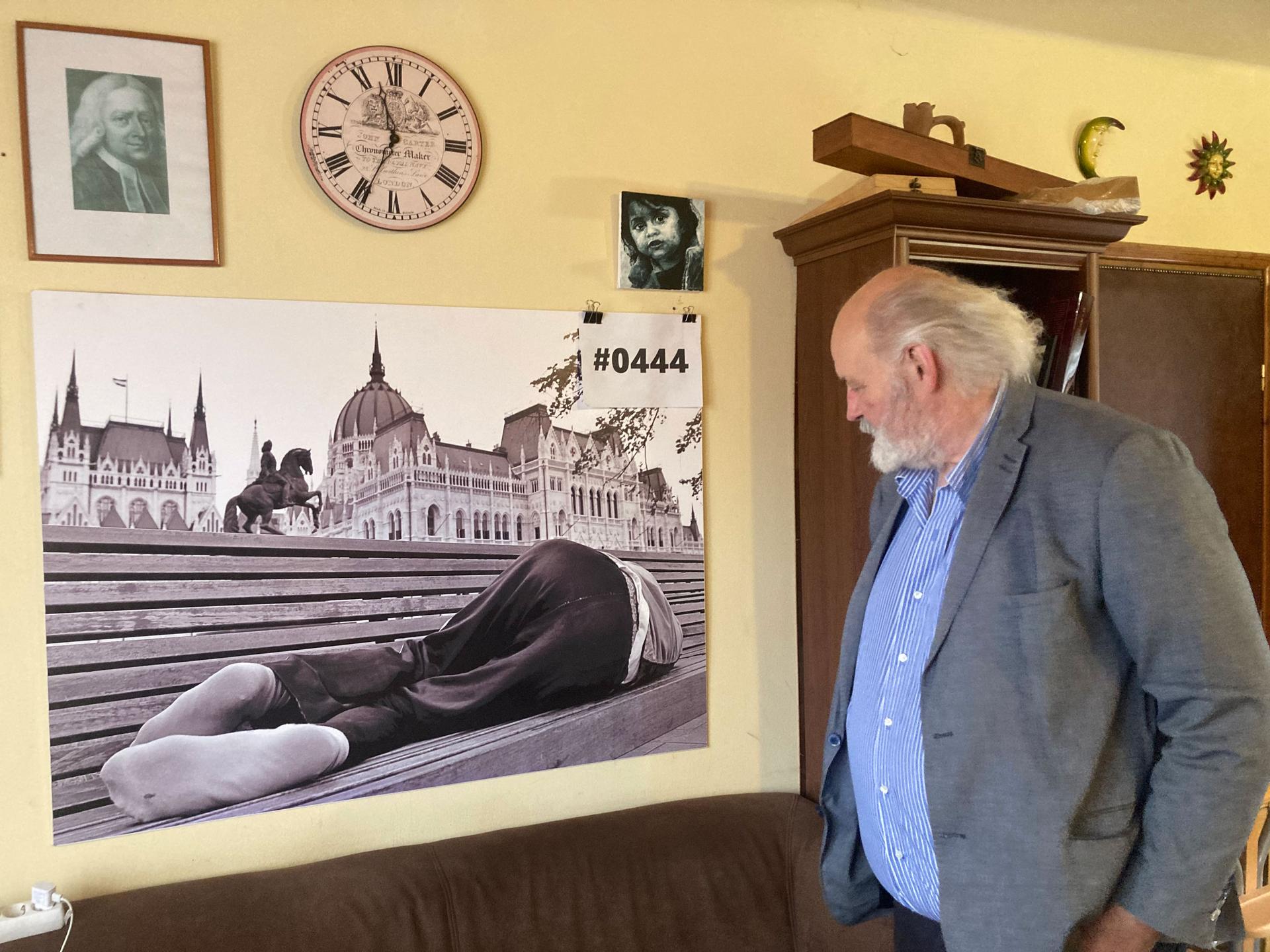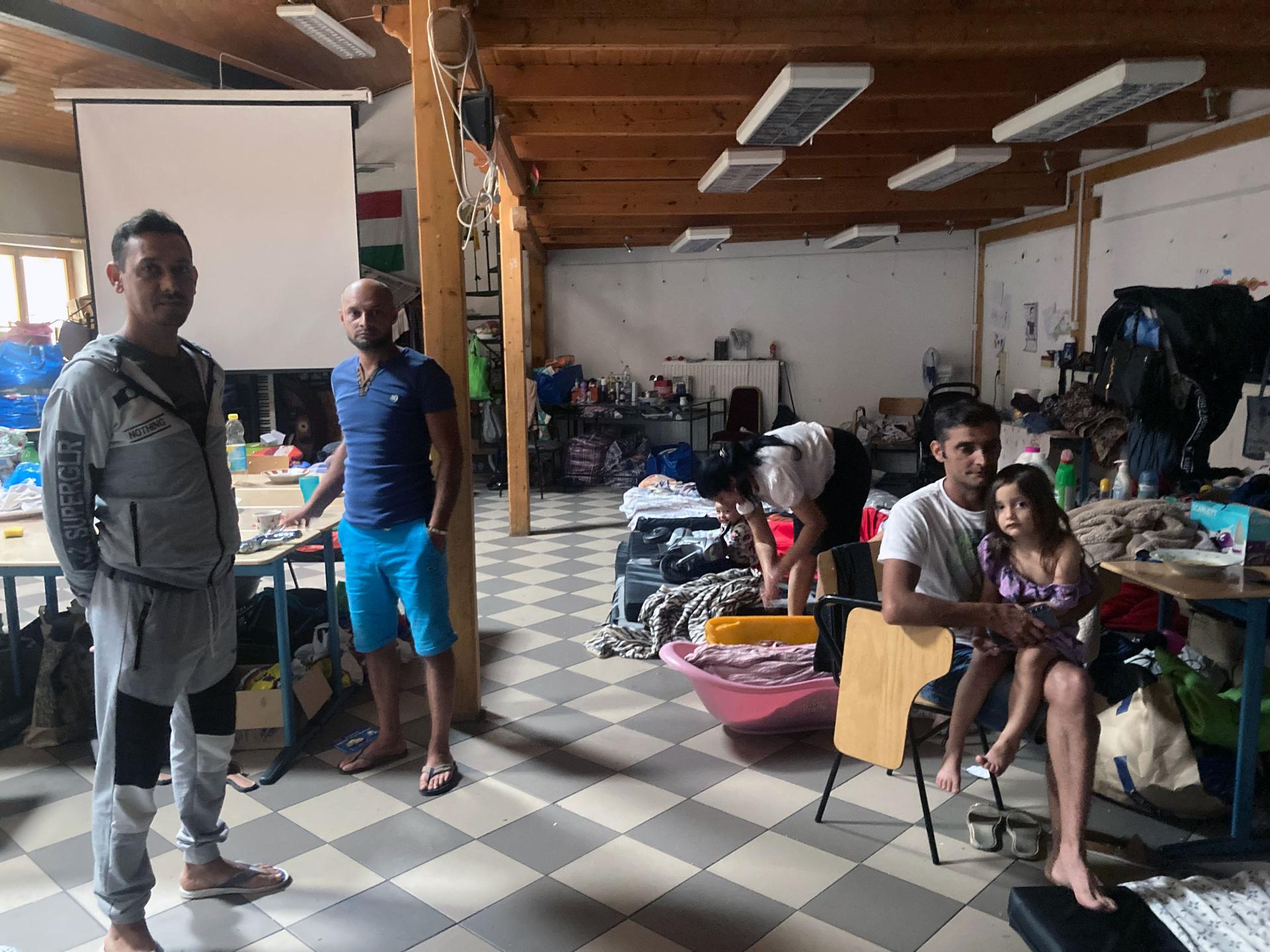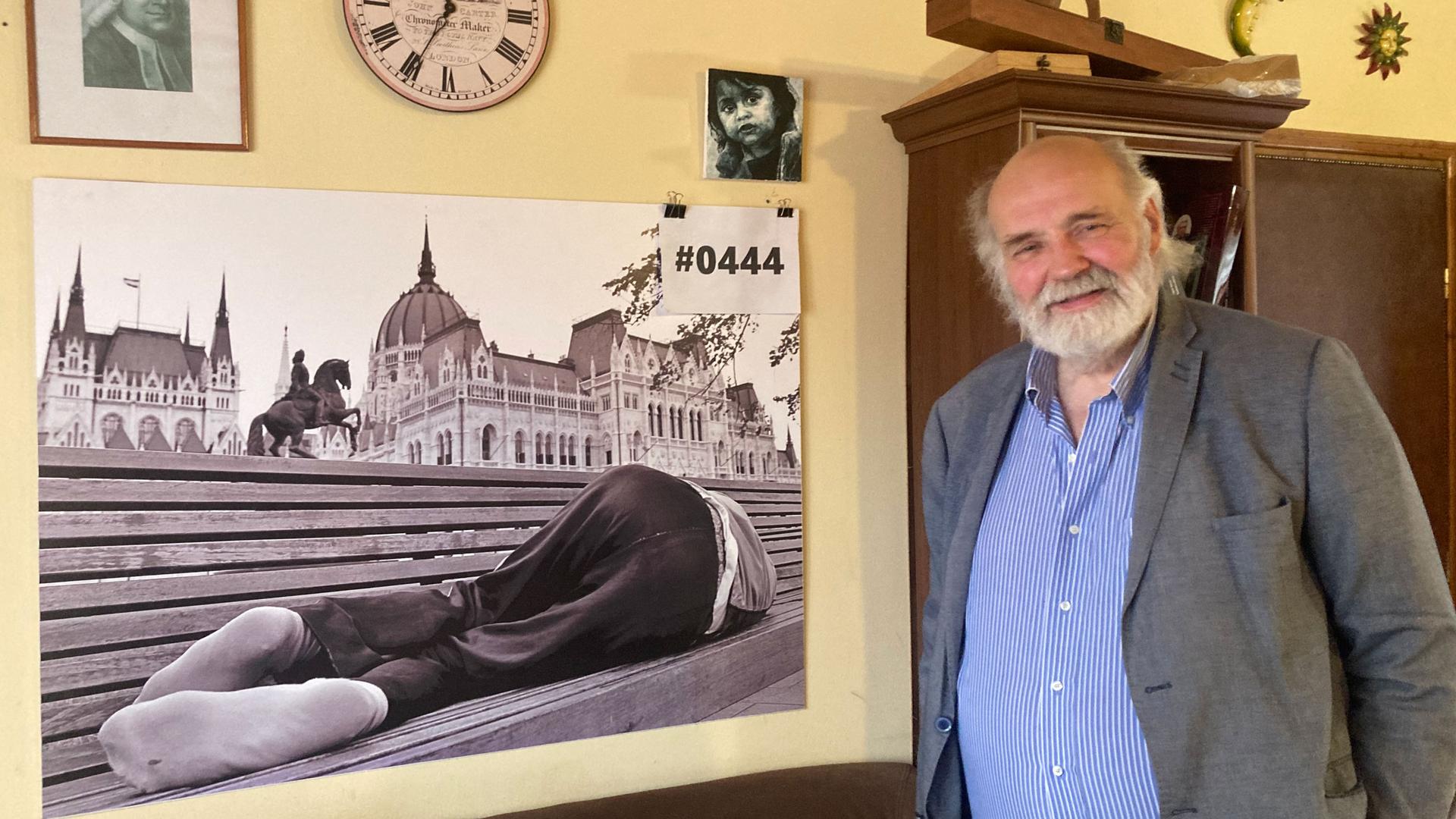Pastor Gábor Iványi’s church, the Hungarian Evangelical Fellowship, runs a number of shelters in Budapest that provide crucial support to Budapest’s homeless, refugees and Roma communities.
On the wall of Iványi’s office hangs a large photograph of one of Budapest’s most famous landmarks, the Hungarian Parliament building. In front, a man is pictured huddled on a street bench. The image symbolizes the battle between the methodist pastor and Viktor Orbán, Hungary’s prime minister.
“We help people who have been largely abandoned by Orbán’s government,” the pastor said.
It’s this sort of frank criticism of the Prime Minister Viktor Orbán that has cost Iványi and his church dearly.

From actvist to autocrat
Pastor Iványi never considered Orbán a friend, but they were once allies fighting on the same side against the communist regime in the late 1980s. Back then, Iványi said he respected Orbán. The young politician was a liberal, pro-democracy activist.
“He was clearly talented,” Iványi said, adding, “He still is, but today Orbán uses those talents to do wrong,” referring to laws targeting the homeless and asylum-seekers in recent years.
In the 1990s, after the fall of the communist regime, Orbán began to embrace Christianity and asked the Methodist pastor to officiate over a religious wedding for him and his wife. They had previously been married in a civil ceremony in 1986. A few years later, Iványi baptized two of Orbán’s children. He was happy to do so, he said.
But as Orbán became more deeply embedded in Hungarian political life, their paths started to diverge.
Fidesz, the once liberal center-right, pro-European party that Orbán governed, gradually adopted a more populist right-wing stand. Orbán’s turn to his Christian faith also proved popular with Hungarian voters. In 1998, he was elected prime minister of Hungary for the first time as leader of a conservative coalition government. At the time, Orbán reportedly asked the pastor for his public support. Iványi refused.
As Iványi watched the former democracy activist transform into an autocratic leader, he began calling him out on his actions.
In 2010, Orbán was elected prime minister for the second time and invited Iványi to a commemoration event. Iványi refused to attend. A year later, Orbán took an action that crippled the pastor’s church when he introduced a new law that stripped over 200 religious institutions, of official state recognition.
The new legislation effectively deprived the Hungarian Evangelical Fellowship and other religious bodies of significant state subsidies.
Gergely Szilvay, a journalist with the conservative news outlet Mandiner, said the new law was necessary because some religious bodies were taking advantage of the state under the old laws.
“Many self-declared church leaders used the previous law to avoid paying tax. They were effectively business churches,” Szilvay said.
But Alexander Faludy, a former Anglican priest and religion expert in Budapest, said he believes Orbán had Iványi and his church in his sights when he changed the law.
“Iványi is a painful reminder of Orbán’s younger self,” Faludy said. “Orbán resents the mirror that Pastor Iványi can hold up to him.”
Faludy said it is only through the support of the public in Hungary that Iványi’s church has managed to survive. But it remains in a fragile state.
“I mean, it is, you know, inches from collapse in terms of its finances,” Faludy said.

The cost of speaking out
Orbán claims to run a Christian government. But Iványi said there is nothing Christian in the way the Hungarian prime minister behaves.
“Orbán’s Christianity is political Christianity,” he said. “It has nothing to do with Christ, with humanism or with the Bible.”
As Orbán’s government introduced new laws targeting asylum-seekers and the homeless, many church leaders in Hungary stayed silent. But Iványi spoke out.
During the 2015 migrant crisis in Europe, Orbán made it clear that Hungary was not a welcoming place for asylum-seekers. Iványi’s church responded by cooking 600 to 800 meals a day at its central Budapest compound and providing shelter for up to 200 refugees every night.
In 2017, a court in Strasbourg ruled that Hungary’s church law violated the European Convention on Human Rights. It ordered the Hungarian government to pay compensation to Iványi and the other churches that had been deprived of state subsidies. Even Hungary’s own constitutional court has twice ruled that Orbán’s government violated the constitution by failing to regulate the status of the Hungarian Evangelical Fellowship.
The church received 1 billion Hungarian forints (about $2.4 million) as compensation after the 2017 ruling. Earlier this year, Iványi said he believes the state still owes his church in the region of 12 billion Hungarian forints ($29 million).

In March, Hungarian tax officials raided Iványi’s office, claiming the church owed over 3 billion Hungarian forints ($7.2 million) in payroll taxes. Iványi said he wasn’t surprised by the action but his staff were deeply shaken. Members of the public gathered outside the building, chanting their support for the pastor. Iványi said he would happily pay the debt if the government paid his church back all the subsidies it has withheld for many years.
Last year, the state returned church status to the Hungarian Evangelical Fellowship, but the church remains deeply in debt.
Iványi said he knows his life would be easier if he wasn’t such a vocal critic of the prime minister but his faith doesn’t allow him to remain silent.
The fact that the church has managed to keep its head above water is a miracle, he said, a pure miracle.
